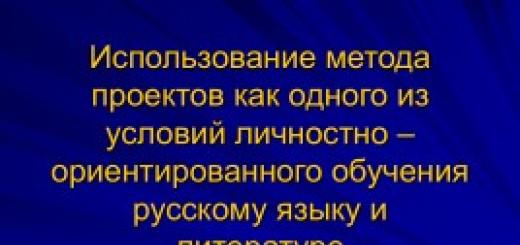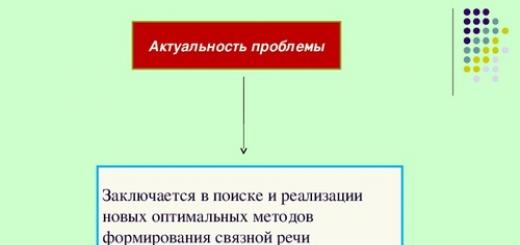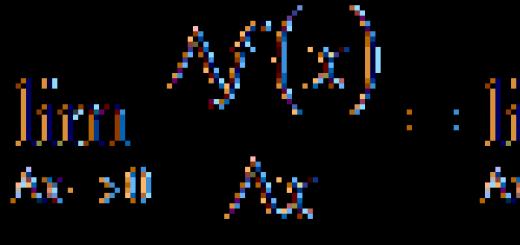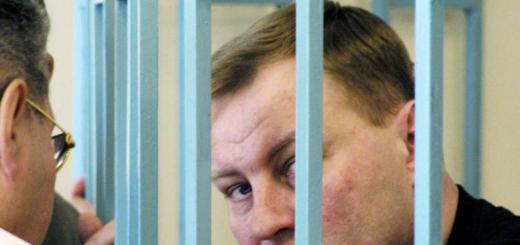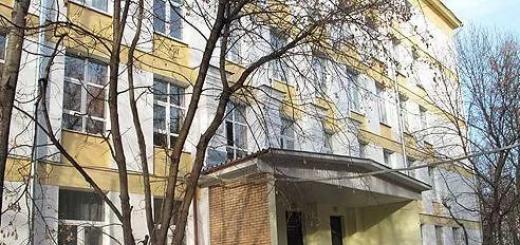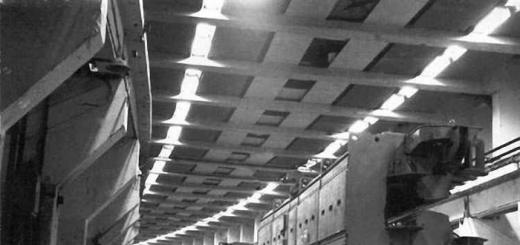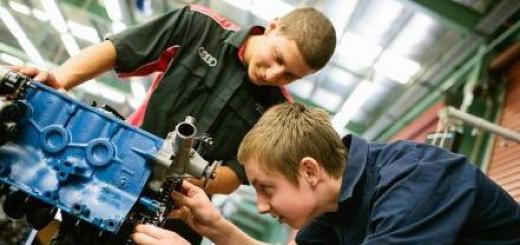is a set of training programs and state standards that are in constant interaction with each other. The levels of education that implement them consist of institutions that are independent of each other. Each level of institution has its own forms of organization and legal subordination bodies that control it.
Education in Russia
At all times, our country has paid special attention to education. However, with the change of centuries and political regimes, it has also undergone significant changes. Thus, in Soviet times, the education system worked under a single standard. The requirements for educational institutions, the plans according to which training was carried out, and the methods used by teachers were uniform and strictly regulated at the state level. However, the revaluation of values today has led to democratization, humanization and individualization in the education system. All these terms, inapplicable in the past, have become commonplace for modern participants in the educational process. There is variability in educational programs, which allows each institution, regardless of its level, to develop its own training plan, provided that it is approved by the regulatory authority.
However, despite all the innovations, the modern Russian education system remains federal and centralized. Levels of education and its types are fixed by law and are not subject to change.
Types and levels of Russian education
Today, in the Russian Federation there are such types of education as general education and vocational. The first type includes preschool and school education, the second - all others.
 As for the level of education, this is an indicator of the mastery of educational programs at various levels, both by an individual and by the population. Educational programs, in turn, are stages of education. This indicator characterizes the real and potential capabilities of society, the state in general, and the individual in particular.
As for the level of education, this is an indicator of the mastery of educational programs at various levels, both by an individual and by the population. Educational programs, in turn, are stages of education. This indicator characterizes the real and potential capabilities of society, the state in general, and the individual in particular.
Education levels:
- general education;
- professional;
- higher.
General education
According to the Constitution of the Russian Federation, every citizen has the right to receive every level of general education free of charge in all government institutions. Levels of general education are:
- preschool;
- school.
School education, in turn, is divided into:
- initial;
- basic;
- average.
Each level prepares for mastering the educational program of the next level.
The very first stage in our country is preschool education. It prepares future students for mastering the school curriculum, and also provides initial knowledge about hygiene, ethics and a healthy lifestyle. At the same time, according to research, children who did not attend preschool, at the next level - school, experience difficulties both in social adaptation and in mastering educational material. 
All subsequent levels of education, like the preschool level, pursue a single goal - to prepare for mastering the next stage of education.
At the same time, the primary task of basic education is to master the basics of various sciences and the state language, as well as the formation of inclinations for certain types of activities. At this stage of education, it is necessary to learn to independently understand the world around us.
Professional education
The levels of professional education are as follows:
- initial
- average;
- higher.
The first stage is mastered in institutions where you can obtain various working professions. These include vocational institutions. Today they are called vocational lyceums. You can get there either after 9th grade or after graduating from 11th grade.
The next level is technical schools and colleges. In institutions of the first type, you can master the basic level of your future profession, while the second type involves more in-depth study. You can also enter there either after the 9th grade or after the 11th grade. However, there are institutions that stipulate admission only after one specific level. If you already have primary vocational education, you will be offered training in an accelerated program.
 And finally, higher education prepares highly qualified specialists in a variety of fields. This level of education has its own sublevels.
And finally, higher education prepares highly qualified specialists in a variety of fields. This level of education has its own sublevels.
Higher education. Levels
So, the levels of higher education are:
- bachelor's degree;
- specialty
- master's degree
It is noteworthy that each of these levels has its own training periods. It should be taken into account that the bachelor's degree is the entry level, which is compulsory for obtaining the rest.
Specialists with higher qualifications in various professions are trained in educational institutions such as universities, institutes, and academies.
This level of education is also characterized by the fact that it has different forms of training. You can learn:
- in person, attending all classes and passing the sessions;
- in absentia, independently studying the course material and passing the sessions;
- part-time, when training can be carried out on weekends or in the evening (suitable for employed students, as it allows you to study without interrupting work);
- externally, here you can complete your studies whenever you see fit (this involves issuing a state-issued diploma, but it will have a note on it that you graduated from the educational institution as an external student).
Conclusion
Types of education and its levels look like this. It is their totality that makes up the education system of the Russian Federation. All of them are regulated at the legislative level by normative documents of various nature and content. 
It should be borne in mind that the purpose of the educational system is not only that it allows one to master various professions. In the process of learning, a personality is formed, which improves with each educational level overcome.
This reform was necessary in order to solve the problem of entering the world system.
Previously, in our country, universities graduated only those who had studied for five to six years. Currently, the following levels of education have appeared:
The first two years are incomplete higher education;
After four to five years of study in a certain area, a “bachelor’s” degree is awarded;
But, as reality shows, there is no common understanding of what the stages of education include. Since in different countries a bachelor can be a university graduate or a holder. The same confusion arises when it is necessary to clearly define who a “master” is.

In addition, the stages of education in Russia include the fourth stage: training of specialists. But currently this is only allowed in a number of specialties.
Let us consider in more detail the main stages of education in Russia.
A specialist studies for five years and receives a practitioner's diploma ("doctor", "engineer", etc.), which allows him to carry out professional activities in the chosen industry.
A bachelor receives a higher education diploma after four (full-time) or five (part-time) years. Then it will be possible to enter a master's program through a competition and study. But, as reality shows, only 20% of bachelors make such a decision. Master's programs are not open at every Russian university, so if you want to study there, you will need to carefully select an educational institution.

The first two years for bachelors and specialists are the same, since during this time basic knowledge and skills are acquired. If you wish to complete your studies, you have the opportunity to receive a diploma of incomplete (vocational) education. From the third year, the standards and plans of bachelors and specialists differ significantly.
Any innovations always require some time to take root and be polished. It should be noted that until now, there are a large number of problems when dividing into levels of education in Russian universities.
The most basic of them is the presence of tension in the recognition of a bachelor's degree. The fact is that employers, as a rule, are not inclined to hire such workers as employees. It is believed that a bachelor’s degree is, firstly, “incomplete education”, and secondly, non-core and general professional. Unlike a specialist and a master, who are trained for a specific industry.
Moreover, the employer is not even convinced by the law, which states that a bachelor can take a position for which, in accordance with the qualification requirements, higher education is provided. Reality shows the opposite. Despite the fact that a bachelor has such a right, employers prefer to hire specialists.
But sooner or later the existing problems will be gradually resolved.
Law of the Russian Federation of December 29, 2012 N 273-FZ "On education in the Russian Federation"- one of the main documents regulating relations in the field of education.
General education, as one of the types of education in our country, is aimed at personal development and the acquisition, in the process of mastering basic general education programs, of knowledge, abilities, skills and the formation of competencies necessary for a person’s life in society, an informed choice of profession and obtaining vocational education.
Levels of general education in Russia:
1) preschool education;
2) primary general education (grades 1-4);
3) basic general education (grades 5-9);
4) secondary general education (grades 10-11).
Thus, general education can be divided into preschool And school education.
PRESCHOOL EDUCATION is aimed at the diversified development of preschool children, taking into account their age and individual characteristics, including the achievement by preschool children of a level of development necessary and sufficient for their successful development of educational programs of primary general education, based on an individual approach to children of preschool age and specific to children preschool age types of activities.
The Law “On Education in the Russian Federation” establishes the right of citizens to receive preschool education and state guarantees of its provision, but it is not mandatory and is not established as a condition for admission to primary school.
Training in PRIMARY SCHOOL is aimed at the formation of the student’s personality, the development of his individual abilities, positive motivation and skills in educational activities (mastery of reading, writing, counting, basic skills of educational activities, elements of theoretical thinking, simple self-control skills, culture of behavior and speech, the basics of personal hygiene and a healthy lifestyle life).
IN BASIC SCHOOL moral convictions, aesthetic taste and a healthy lifestyle, a high culture of interpersonal and interethnic communication are formed. Students master the basics of science, the state language of the Russian Federation, mental and physical labor skills, they develop inclinations, interests, and abilities for social self-determination.
Secondary general education ( HIGH SCHOOL) is aimed at the further development and formation of the student’s personality, the development of interest in knowledge and the student’s creative abilities, the formation of skills in independent educational activities based on individualization and professional orientation of the content of secondary general education, the preparation of the student for life in society, independent life choices, continued education and the beginning professional activity.
The organization of educational activities in the educational programs of primary general, basic general and secondary general education can be based on differentiation of content, taking into account the educational needs and interests of students, ensuring in-depth study of individual academic subjects, subject areas of the relevant educational program (profile training).
Primary general education, basic general education, secondary general education are compulsory levels of education. Students who have not mastered the basic educational program of primary general and (or) basic general education are not allowed to study at the following levels of general education. The requirement of compulsory secondary general education in relation to a specific student remains in force until he reaches the age of eighteen, if the corresponding education has not been received by the student earlier.
Schooling is accompanied by intermediate and final certifications . At the end of grades 9 and 11, state final certifications are carried out in the form OGE, Unified State Exam and GVE .
General education in our country can be obtained in organizations engaged in educational activities (kindergartens, schools), as well as outside these organizations (in the form of family education and self-education). At the same time, persons mastering the basic educational program in the form of self-education or family education have the right to undergo an external intermediate and state final certification (SFA) in an accredited educational organization.
At the same time, students and their parents (legal representatives) have the right to apply for educational services from educational organizations and individual entrepreneurs of their choice on a paid basis.
State and municipal educational organizations have the right to provide paid educational services that cannot be provided in place of educational activities financed from budgets of all levels (federal, constituent entities of the Russian Federation or local). Thus, paid services include services that go beyond the scope of the main educational activities provided for by state educational standards and specified in the charter of the educational organization.
Hello, dear readers!
Our country has a system of continuous education. This is a legal term and it was introduced back in the Soviet years. Continuing education makes it possible to improve the personality in many ways, its development and the realization of spiritual and moral needs, passing through all existing levels of education in the Russian Federation.
Education regulated by law
On September 1, 2013, Law No. 273 came into force. It seriously changed the familiar idea of the educational process for our citizens. The Bologna education system, used in many European countries, was taken as a basis.
According to the new law, there are levels of education in Russia - those stages, steps that every citizen goes through in order to receive an education, socialize and master a profession. Some of these levels are optional.
Let's look at them in detail.
Preschool education
This is the first stage in the education system, aimed at raising, teaching, forming, caring for and improving the health of children.
Preschool education programs are implemented in kindergartens. These institutions work with children, taking into account their capabilities and needs. There are combined, general developmental, compensatory, special education centers.
According to experts, it is the garden that shapes personality, determines mental and physical characteristics, and helps the child enter society.
Children under the age of 6 receive preschool education.
General education system
Education in schools consists of several stages and generally represents one of the levels - general education.
Primary general education
Primary school starts at the age of six and a half and lasts for three years. At this stage, the formation of the child’s personality continues. They prepare him for school, lay down basic knowledge and skills (writing, reading, develop logical thinking, teach him to build the right relationships with other participants in the educational process.
Basic general education
Having entered the fifth grade, the student takes a step to the second stage of general education and will have to study until the 9th grade. This is a mandatory stage in the educational system. During this period, the personality develops diversified, its abilities and inclinations are revealed. Schoolchildren are prepared to master high school programs, begin work on vocational guidance, and are introduced to physical labor.
Secondary general education
By mastering the program of secondary general education in schools, lyceums, gymnasiums (grades 9-11), children are formed as citizens, participants in social processes, demonstrate their abilities, self-realization and self-determination, acquire knowledge that they will need in life, further study and work.
Primary, general and secondary education is received in general education institutions. Children who have not received general education are not allowed to the next levels.
Professional education
Secondary vocational. Institutions of secondary vocational education prepare specialists in areas that meet the needs of citizens and the state. These are all working professions.
Children with basic or secondary general education can enroll in secondary vocational education institutions (technical schools or colleges).
The duration of study for graduates of 9th grade is 4 years. Those who enter after 11th grade will have to study for 2 years.
Higher education

Higher professional education. Its goal is to train personnel in all specialties and professions that are relevant to society at the present time. Persons with secondary general or secondary vocational education are allowed to study. At the same time, the law adopted in 2013 provides for several levels of higher education:
Bachelor's degree is the first level, providing basic knowledge and theoretical ideas in the specialty. A bachelor's degree is awarded after four years of study after passing an examination.
Graduates are issued a diploma of higher education, which includes a bachelor's degree. Such a person may be employed in accordance with the requirements applicable to the position.
Master's degree is the next level after bachelor's degree. Those who already have a bachelor's degree and want to deepen their knowledge enroll in the master's program. You can also complete a master's degree as a second higher education. The duration of study is two years.
Additional education
In our country, additional education provides training for children and adults under additional education programs. It is aimed at realizing a person’s needs for self-development, demonstrating one’s talents, capabilities, and mastering additional skills and abilities that other levels of education do not provide.
For children, preschool education is most often represented by clubs and sections of physical, artistic, scientific, technical, and natural sciences.
Adults receive additional education through courses.
The education systems in the Russian Federation and the USSR are often compared with each other. Of course, some aspects remain the same. But in general, one can observe a number of innovations, without which it is simply impossible in the conditions of the scientific and technical process, the state of the economy, and the revaluation of moral and cultural values.
The modern education system in our country is built on the principles that are used in European countries and has only just begun its development.
And I want to believe that sooner or later our new Russian education system, like the Soviet one, will be recognized as the strongest and most effective.
Structure of the educational system in Russia.
The structure of the Russian educational system, the general principles of its functioning and development, as well as the main social characteristics are determined by the Federal legislation of the Russian Federation in the field of education. Currently it includes:
1) Federal Law “On Education” (as amended in 1996);
2) Federal Law “On Higher and Postgraduate Professional Education” (1996);
3) Federal program for the development of education;
4) Federal Law of April 10, 2000 “On approval of the Federal Education Development Program.”
According to the basic law, the Russian educational system is a combination of:
1) educational programs and state educational standards;
2) educational institutions implementing educational programs and state educational standards;
3) educational authorities and institutions and organizations subordinate to them.
The term "educational program" implies an integral program of a certain level of education.
There is a hierarchical ladder of educational levels in Russia, built on the basis of relevant educational programs, which includes eleven steps related to six levels of education: Education as a system is a set of institutions of different types and levels.
7.4.Levels of education. Education (1. preschool, 2. school, 3. additional, 4. secondary special, 5. higher, 6. postgraduate), being a process that shows the structure and features of the development of the entire education system as a whole.
An example is a network of music schools that offer additional music education programs. Children have the opportunity to study at a music school in parallel with their studies at a comprehensive school. A variety of additional education courses are very popular among students and students, such as computer, economics, foreign language courses, which they study on an elective basis, etc. Thus, the basis of the Russian education system is a combination of basic and additional educational programs.
7.5.Types of educational institutions. The second element which is a component of education in Russia, is a system of various types and types educational institutions.
Educational, according to the Law “On Education,” is an institution that carries out the educational process, i.e., an institution that solves one or more educational problems. There are some features of the established standards.
1. Depending on their organizational and legal forms, educational institutions can be state, non-state (private, institutions of public and religious organizations, etc.) and municipal.
2. Each educational institution independently develops and approves educational and methodological documentation, which determines the organization of the entire educational process, is the educational program as a whole, its division into hours by academic disciplines and years of study. There is only one regulatory document in this area that must be followed when drawing up training programs - GOST. All other documents are recommended for execution and are non-binding in nature, coordinating the educational and methodological work of educational institutions.
3. Each educational institution that intends to define educational activities as its mission and begin training schoolchildren or students must obtain a license to conduct educational activities of a certain level and the ability to issue state-issued educational documents. The issuance of such a license is made after the educational institution successfully passes the stages of certification and subsequent state accreditation.
Educational institutions, depending on the level and focus of training programs, can be divided into types and types.
Type of educational institutions associated mainly with the accepted classification of educational programs, which are divided into: basic, additional, general education and professional.
Type of educational institutions depends on the focus of the educational programs implemented by this educational institution, and, as a rule, each type has its own distinctive name. One can give an example of secondary schools, among which lyceums and gymnasiums appeared; educational institutions of secondary vocational education are divided into schools, technical schools, and colleges. Among the universities there are universities, conservatories, academies, institutes, etc.
The third element in the educational system is education authorities. According to the Constitution of the Russian Federation, general issues of education are under the joint jurisdiction of the Russian Federation and its constituent entities. This means that on subjects of joint jurisdiction, the Russian Federation and the constituent entities of the Russian Federation issue, in addition to federal laws, laws and other legal acts of the constituent entities of the Russian Federation, adopted in accordance with them (Article 76 of the Constitution of the Russian Federation). At the level of the Russian Federation there are:
1) federal (central) state educational authorities;
2) federal departmental educational authorities.
Such a federal central body is the Ministry of Education, and federal departmental bodies are federal ministries and federal departments, which are essentially the founders of educational institutions. Over 95% of all public universities are under the leadership of the Ministry of Education or other federal ministries. Only non-state universities do not fall under the jurisdiction of state (municipal) authorities and are managed directly by the founder.
7.6. Distinctive features of modern education systems. One of the distinctive features of modern education systems is the transition from state to state-public education management. The essence of the latter is to combine the efforts of the state and society in solving educational problems. In conditions of support for education from the state and society, the education system must ensure the effective use of its resources - human, informational, material, financial. A special feature of the education system as a sector of the national economy is that it has a significant non-market component. The non-market sector in education ensures the maintenance of socio-economic stability, social progress, and satisfaction of the need for such a vital good as education. But at the same time, in the absence of any serious competition in the non-market sector of the educational system, it becomes characterized by such a negative side as the limitation of basic types of resources and the impossibility of attracting them in sufficient quantities. In this regard, the education system today is viewed from the perspective of the most effective investment in the future well-being of society - investment in human capital

